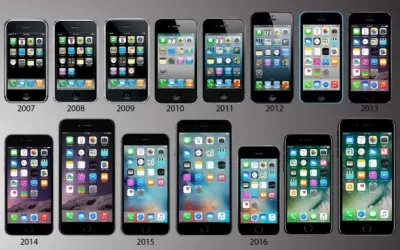Unveiling Bias in Artificial Intelligence: The Complex Interplay of Technology and Society
In the age of rapid technological advancement, artificial intelligence (AI) stands as a beacon of innovation, promising to revolutionize industries, streamline processes, and enhance decision-making. However, beneath its veneer of impartiality lies a complex web of biases that have raised significant ethical concerns. From biased algorithms in hiring processes to discriminatory facial recognition systems, the manifestations of bias in AI are manifold and demand critical examination.
At its core, AI systems are designed to analyze vast amounts of data to identify patterns and make predictions or decisions. Yet, the data itself is often a reflection of societal biases and inequalities. Historical injustices, stereotypes, and systemic discrimination become ingrained in the datasets used to train AI models, perpetuating and even exacerbating existing biases.
One of the most glaring examples of bias in AI is in the realm of facial recognition technology. Studies have shown that these systems exhibit higher error rates when identifying individuals with darker skin tones or female faces, reflecting the lack of diversity in the datasets used for training. Such biases can have profound consequences, leading to wrongful arrests or exacerbating racial profiling.
Similarly, bias in AI-powered hiring tools has come under scrutiny. These systems often rely on historical hiring data to make recommendations, inadvertently perpetuating gender or racial biases present in past hiring decisions. By favoring certain demographic groups or penalizing others based on flawed criteria, these AI systems can perpetuate systemic inequalities in the workforce.
Moreover, the opacity of many AI algorithms exacerbates the problem. Without transparency in how these systems reach their conclusions, it becomes challenging to identify and address bias effectively. The “black box” nature of AI algorithms hinders accountability and makes it difficult to ensure fairness and equity in their outcomes.
Addressing bias in AI requires a multifaceted approach that involves stakeholders from diverse disciplines. Technologists, ethicists, policymakers, and civil society must collaborate to develop robust frameworks for identifying, mitigating, and preventing bias in AI systems.
One strategy is to prioritize diversity and inclusivity in the development process. This includes diversifying the teams responsible for creating AI systems to ensure a range of perspectives are considered from the outset. Additionally, implementing measures such as bias audits and algorithmic impact assessments can help identify and mitigate bias before deployment.
Furthermore, promoting transparency and accountability is essential. Developers should strive to make AI algorithms more interpretable, enabling external scrutiny and understanding of their decision-making processes. Moreover, establishing clear guidelines and regulations around the ethical use of AI can hold developers and organizations accountable for the impact of their technology on society.
Education and awareness also play a crucial role in addressing bias in AI. By fostering a greater understanding of the ethical implications of AI among developers, policymakers, and the general public, we can collectively work towards more responsible AI development and deployment.
In conclusion, while artificial intelligence holds immense promise, its potential is marred by the pervasive presence of bias. From facial recognition systems to hiring algorithms, the manifestations of bias in AI underscore the need for ethical vigilance and proactive intervention. By fostering diversity, transparency, and accountability in AI development, we can strive towards a future where AI serves as a force for positive societal change rather than perpetuating existing inequalities.






























South Florida Media Comments